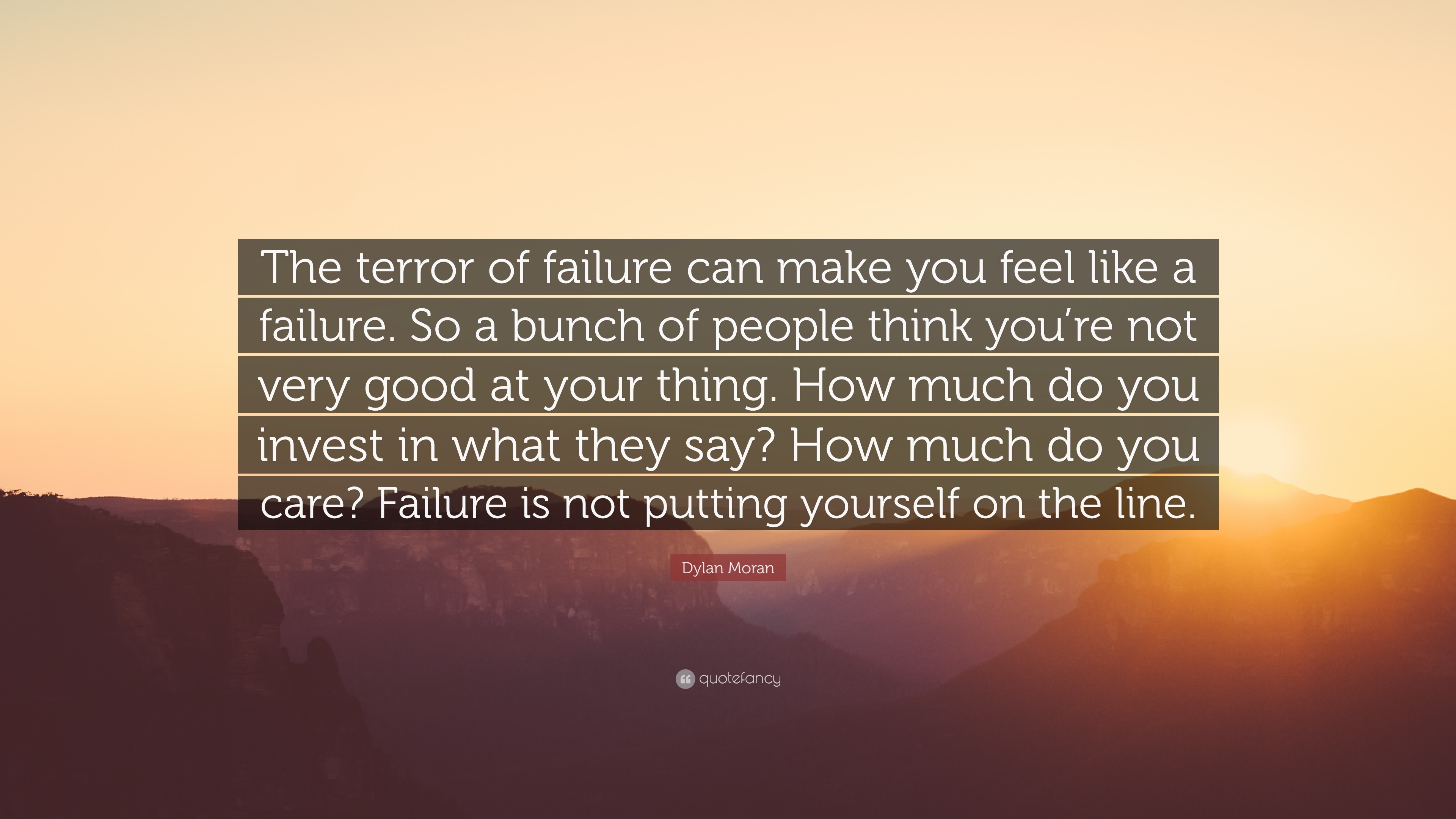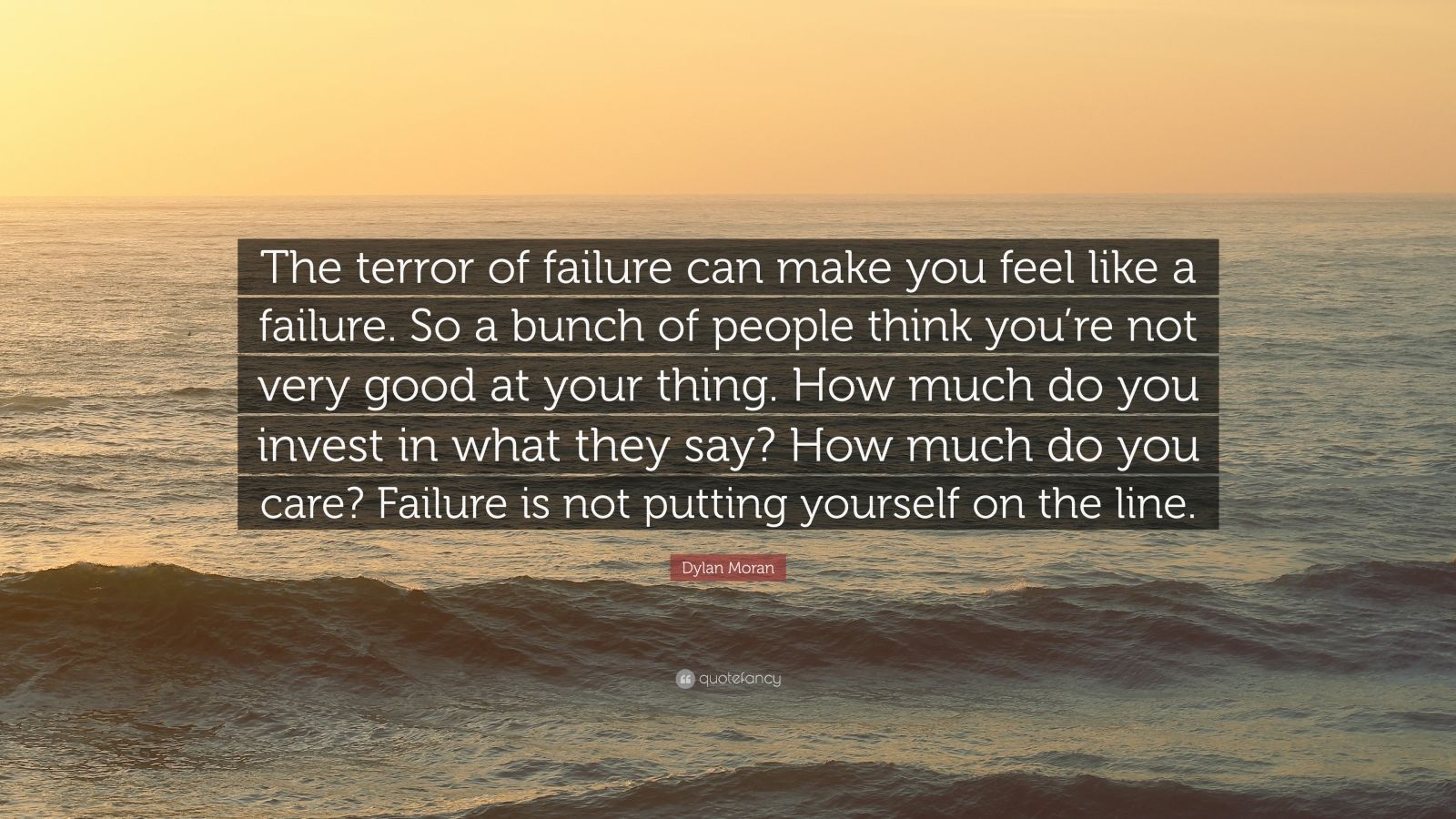Inspirational Quotes When You Feel Like A Failure

The weight of perceived failure can feel crushing, a silent storm raging within. It can cloud judgment, erode confidence, and leave individuals paralyzed by self-doubt. In moments of despair, finding a lifeline can seem impossible, but the wisdom of others, distilled into concise and powerful quotes, can offer a flicker of hope, a spark of resilience.
This article explores how carefully selected inspirational quotes can act as cognitive reframing tools, providing psychological support during periods of perceived failure. By examining the impact of such pronouncements, we will delve into how these nuggets of wisdom can shift perspectives, bolster self-esteem, and reignite the drive to persevere. We'll also explore potential pitfalls and the importance of contextualizing these sentiments within individual experiences and circumstances.
The Power of Perspective: Reframing Failure
Psychologists often emphasize the crucial role of perspective in navigating adversity. Dr. Carol Dweck, renowned for her work on growth mindset, asserts that failure is not a fixed attribute but rather an opportunity for learning and growth.
Her research suggests that adopting a growth mindset, fueled by the belief that abilities can be developed through dedication and hard work, allows individuals to view setbacks as temporary and surmountable. This is mirrored in the often-cited quote, "Failure is not the opposite of success, it's part of success."
"Success is not final, failure is not fatal: It is the courage to continue that counts." - Winston Churchill
This sentiment underscores the transient nature of both success and failure. What truly matters is the unwavering commitment to moving forward, regardless of past experiences.
Boosting Self-Esteem Through Words of Affirmation
Failure can deeply impact self-esteem, leading to feelings of inadequacy and worthlessness. Inspirational quotes that emphasize self-compassion and self-acceptance can act as a powerful antidote.
Quotes like, "You are enough," and "Embrace your imperfections," can serve as reminders of inherent worth, irrespective of external achievements. These affirmations can help individuals cultivate a more forgiving and accepting relationship with themselves, mitigating the negative emotional consequences of perceived failure.
Brené Brown, a leading researcher on vulnerability and shame, highlights the importance of self-compassion in fostering resilience. Her work suggests that treating oneself with kindness and understanding during difficult times can significantly enhance emotional well-being and promote adaptive coping strategies.
Reigniting Motivation and Drive
Perhaps the most challenging aspect of feeling like a failure is the loss of motivation and the erosion of drive. Quotes that emphasize resilience, perseverance, and the importance of pursuing one's goals can serve as potent motivators.
Thomas Edison's famous quote, "I have not failed. I've just found 10,000 ways that won't work," illustrates the iterative nature of success and the importance of viewing setbacks as learning opportunities. Similarly, the quote, "The only way to do great work is to love what you do," can reignite passion and provide a renewed sense of purpose.
According to a study by the University of California, Berkeley, individuals who derive intrinsic motivation from their work are more likely to persevere through challenges and achieve long-term success. Inspirational quotes that resonate with personal values and passions can serve as a constant reminder of why the pursuit is worthwhile.
Cautions and Considerations
While inspirational quotes can be beneficial, it's important to approach them with a critical and nuanced perspective. Over-reliance on platitudes without addressing underlying issues can be counterproductive.
Furthermore, context matters. A quote that resonates with one person may not resonate with another, depending on their individual experiences and circumstances. It's crucial to select quotes that genuinely align with one's personal values and beliefs, rather than blindly accepting them as universal truths.
Seeking professional help from a therapist or counselor can provide a more comprehensive and personalized approach to overcoming feelings of failure. These professionals can offer guidance, support, and evidence-based strategies for addressing underlying issues and developing healthy coping mechanisms.
Looking Ahead: Cultivating a Growth Mindset
Ultimately, overcoming the feeling of failure requires cultivating a growth mindset and embracing the learning process. Inspirational quotes can serve as valuable tools in this journey, but they are not a substitute for self-reflection, self-compassion, and proactive problem-solving.
By internalizing the message that failure is an opportunity for growth, individuals can transform setbacks into stepping stones on the path to success. Continued research into the effectiveness of positive affirmations and cognitive reframing techniques will further illuminate the power of words in shaping our perceptions and influencing our outcomes.
As we navigate the inevitable challenges of life, let us remember the wisdom of those who have come before us and use their words to fuel our resilience, reignite our passions, and remind ourselves that even in the darkest of times, hope remains. The key is not to avoid failure, but to learn from it, grow from it, and emerge stronger and more resilient than ever before.


















